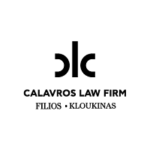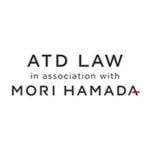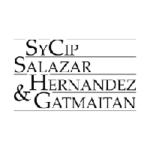-
What legislation applies to arbitration in your country? Are there any mandatory laws?
The Applicable Legislation on Arbitration in Singapore
The legislative statutes governing arbitration in Singapore are the International Arbitration Act 1994 (the “IAA”) and the Arbitration Act 2001 (the “AA”).
As the name suggests, the IAA generally governs any arbitration seated in Singapore that is an international arbitration (as defined by section 5(2) of the IAA). On the other hand, the AA applies to any arbitration seated in Singapore that is not an international arbitration as defined by section 5(2) of the IAA (hereafter referred to as a “domestic arbitration”).
The IAA (via section 3(1) of the IAA) incorporates the United Nations Commission on International Trade Law (“UNCITRAL”) Model Law on International Commercial Arbitration (the “UNCITRAL Model Law”), subject to a few amendments contained in the IAA itself.1 The IAA (via Part III of the IAA) also gives effect to the Convention on the Recognition and Enforcement of Foreign Arbitral Awards (1958) (the “New York Convention”).
Under section 5(2) of the IAA, an arbitration is international if:
- one of the parties had at the time of the arbitration agreement a place of business outside Singapore;
- the place of arbitration is outside the state in which the parties have their places of business;
- the place where a substantial part of the commercial obligations is to be performed is outside the state in which the parties have their places of business;
- the place with which the subject-matter of the dispute is most closely connected with is outside the state in which the parties have their places of business; or
- the parties have expressly agreed that the subject-matter of the dispute is in relation to more than one (1) country.
However, section 5(1) of the IAA additionally provides that the IAA may apply to arbitrations which are not international if the parties to the arbitration agreement agree in writing that the IAA or the UNCITRAL Model Law is to apply to the arbitration.
Mandatory Laws
Certain aspects of the IAA are expressed in mandatory terms, meaning neither the parties nor the tribunal can derogate from them. The IAA expressly provides that the parties are free to adopt institutional rules only to the extent that they are not inconsistent with those parts of the IAA or the UNCITRAL Model Law which are mandatory.
There is no exhaustive list as to which parts of the IAA or the UNCITRAL Model Law are considered “mandatory”, and it would be a question of statutory interpretation to determine whether any specific provision was intended to have mandatory effect.
Importantly, no inconsistency arises simply because the rules chosen by the parties provide for something on which the IAA or the UNCITRAL Model Law is silent. Likewise, no inconsistency arises simply because the IAA or the UNCITRAL Model Law provides for something on which the rules chosen by the parties are silent.
There are clear provisions which are not mandatory, generally expressed as provisions which apply “unless the parties have otherwise agreed”.
Some key provisions which are generally understood to be mandatory are:
- That an arbitration agreement must be in writing;
- The arbitrator’s duty to treat the parties with equality;
- The exclusion of liability for an arbitrator’s negligence or any mistake in law, fact or procedure;
- That the Limitation Act 1959 and the Foreign Limitation Periods Act 2012 apply to arbitration proceedings seated in Singapore. Any arbitration agreement that provides that, for the purposes of limitation, the cause of action will not accrue until after an award is made shall have no effect, and the cause of action will be deemed to have accrued as if no such agreement was in place; and
- That a dispute may not be determined by arbitration if it is contrary to public policy to do so. Case law has explained that a dispute must be arbitrable under the public policy of Singapore (as the law of the seat) and under the public policy of the law of the arbitration agreement (where this law is not Singapore law).
Footnote(s):
1 This includes (but is not limited to) (1) an expanded definition of “international arbitration” compared to Article 1(3) of the Model Law; (2) additional grounds for setting aside an award; (3) default rules for the appointment of arbitrators; and (4) exclusion of Part VIII of the Model Law. Please refer to the response to Question 4 (“Is the law governing international arbitration in your country based on the UNCITRAL Model Law? Are there significant differences between the two?”) for more information.
-
Is your country a signatory to the New York Convention? Are there any reservations to the general obligations of the Convention?
Yes, Singapore ratified the New York Convention, and the relevant national legislation is Part 3 of the IAA.
Singapore has made the reciprocity reservation in respect of the New York Convention.2 This means that the Singapore courts will only enforce awards made in the territory of another contracting state to the New York Convention.3
Otherwise, and pursuant to section 46(3) of the AA, arbitral awards made in non-contracting states to the New York Convention can be enforced in accordance with the procedure for enforcement of a domestic arbitral award.
Footnote(s):
2 Please see the 1958 New York Convention Guide at https://newyorkconvention1958.org/index.php?lvl=cmspage&pageid=11&menu=843&opac_view=-1.
3 For the full list of contracting states to the New York Convention, please refer to https://www.newyorkconvention.org/contracting-states.
-
What other arbitration-related treaties and conventions is your country a party to?
Singapore is a party to forty-six (46) Bilateral Investment Treaties / Investment Guarantee Agreements. Singapore is also a party to twenty-eight (28) Free Trade Agreements (whether bilateral or multi-party) which contain chapters on investment protection.4
Singapore is also a contracting state of the International Centre of Settlement of Investment Disputes (“ICSID”) Convention. The ICSID Convention facilitates the conciliation and arbitration of investment disputes between contracting states and national of other contracting states to the ICSID Convention.5
Footnote(s):
4 https://www.mti.gov.sg/Trade/International-Investment-Agreements
-
Is the law governing international arbitration in your country based on the UNCITRAL Model Law? Are there significant differences between the two? Are there any impending plans to reform the arbitration laws in your country?
Yes, the IAA expressly incorporates the UNCITRAL Model Law and gives the same the force of law in Singapore, subject to very few amendments contained in the IAA itself.
Some of these amendments are as follows:
- Expanded definition of “international arbitration”. The IAA expands the definition of “international arbitration” contained in Article 1(3) of the UNCITRAL Model Law, and includes:
- Where at least one of the parties has its place of business outside Singapore at the time the arbitration agreement was concluded;
- Where place of arbitration, the place where a substantial part of the parties’ obligations are to be performed, or the place to which the subject matter of the dispute is more closely connected, falls outside the country in which the parties have their place of business; and
- Where the parties have expressly agreed that the subject matter of the arbitration agreement relates to more than one country.
- Additional grounds for setting aside. The IAA adds two grounds for setting aside an award – (i) where the award was procured by fraud or corruption; or (ii) where the award was made in breach of the rules of natural justice, provided this breach prejudiced the rights of a party.
- Default rules for appointment of arbitrators. The IAA departs from the default rules in the UNCITRAL Model Law, by providing that the default number of arbitrators is a single arbitrator, as opposed to three arbitrators.
- Where the arbitration is to be heard by three (3) arbitrators, the claimant (or claimants) must appoint an arbitrator on or before sending their request for arbitration. The respondent (or respondents) must appoint an arbitrator within thirty (30) days after receiving the request for arbitration
- Exclusion of Part VIII of the UNCITRAL Model Law. The IAA gives the UNCITRAL Model Law the force of law in Singapore, except for Chapter VIII on recognition and enforcement of awards. However, the courts in Singapore have recognised that, notwithstanding the exclusion of Chapter VIII, the basis for refusing enforcement of a Singapore arbitration award under section 19 of the IAA includes the grounds contained in Article 36(1) of the Model Law, whereas the grounds for refusing enforcement of a foreign award are set out in the New York Convention.6
On 21 March 2025, the Ministry of Law announced a public consultation period between 21 March 2025 to 2 May 2025 in respect of proposed reforms to the IAA.7 This consultation followed the issuance of a report by the Singapore International Dispute Resolution Academy (“SIDRA”) on 21 November 2024 with various recommendations for reform.8 SIDRA recommended the following reforms to the IAA:
- To enact an express provision empowering the courts to re-apportion (but not vary) the costs of arbitration proceedings where the award is successfully set aside. In exceptional circumstances, the issue may be remitted to the Tribunal;
- To require parties to obtain leave from the appellate court to bring an appeal against decisions made in setting aside or enforcement applications.
- To allow the courts to extend the three (3) month time limit for setting aside applications involving fraud or corruption under Section 24(a) of the IAA.
- To allow parties to opt-in to a right to appeal to the court on points of law;
- To enact a new statutory law approach in respect of determining the law applicable to an arbitration agreement. SIDRA’s proposal is that the applicable law should be (1) the law expressly chosen to govern the arbitration agreement; (2) if no such choice is made, the applicable law of the contract; or (3) where no applicable law is expressly designated, the law of the seat. Where the parties have not (expressly or by default) determined the law of the seat of the arbitration, the courts will be empowered to determine the seat of the arbitration having regard to the circumstances of the case, including the convenience of the parties; and
- To empower tribunals to summarily dispose of matters by way of an award, unless the parties expressly exclude this power.
Footnote(s):
6 See PT First Media TBK (formerly known as PT Broadband Multimedia TBK) v Astro Nusantara International BV and others and another appeal [2014] 1 SLR 372 at [84], where the Singapore Court of Appeal held that “the most efficacious method of giving full effect to the Model Law philosophy would, in our view, be to recognise that the same grounds for resisting enforcement under Art 36(1) are equally available to a party resisting enforcement under s 19 of the IAA.”
7 https://www.mlaw.gov.sg/public-consultation-on-the-international-arbitration-act-1994-of-singapore/
- Expanded definition of “international arbitration”. The IAA expands the definition of “international arbitration” contained in Article 1(3) of the UNCITRAL Model Law, and includes:
-
What arbitral institutions (if any) exist in your country? When were their rules last amended? Are any amendments being considered?
The two main arbitration centres in Singapore are the Singapore International Arbitration Centre (“SIAC”) and the Singapore Chamber of Maritime Arbitration (“SCMA”).
The 7th Edition of the SIAC Arbitration Rules (the “SIAC Rules 2025”) came into force on 1 January 2025, which was a timely update to the 6th Edition in force since 1 August 2016 (the “SIAC Rules 2016”) aimed at addressing cost and efficiency concerns, particularly in relation to smaller claims.
Some key updates in the SIAC Rules 2025 include:
- Introduction of the Streamlined Procedure: The SIAC has built upon its implementation of fast-track arbitrations by implementing a new Streamlined Procedure applicable to claims which do not exceed S$ 1,000,000, unless otherwise agreed (or excluded) by the parties.9 Claims brought under the Streamlined Procedure are heard by a sole arbitrator on a documents-only basis. Unless otherwise determined by the arbitrator, claims under the Streamlined Procedure will be determined without expert or witness evidence, without document production, and without a hearing. The final award under the Streamlined Procedure is to be issued within three (3) months from the constitution of the Tribunal and the Tribunal and SIAC’s fees are capped at 50% of the applicable limits in the SIAC’s Schedule of Fees.10
- Expansion of the Expedited Procedure: Under the SIAC Rules 2016, parties could make an application for disputes under S$ 6,000,000 to be determined under the Expedited Procedure. With the implementation of the Streamlined Procedure for smaller claims, the SIAC Rules 2025 provide that the Expedited Procedure will apply to claims between S$ 1,000,000 and S$ 10,000,000. By default, proceedings under the Expedited Procedure are to be heard by a sole arbitrator and are to be decided on a documents-only basis, but the parties and the arbitrator may request that a hearing take place. Any such hearing is to be held virtually unless otherwise agreed by the parties or determined by the Tribunal. The sole arbitrator is also empowered to refuse any document production requests and limit the scope and length of written submissions and written witness evidence. Any award issued under the Expedited Procedure is to be issued within six (6) months of the constitution of the Tribunal.
- Empowering Emergency Arbitrators to grant preliminary, ex parte relief: The SIAC Rules 2025 build upon the Emergency Arbitrator procedures implemented in 2010. Notably, Emergency Arbitrators are now empowered to grant preliminary interim relief, on an ex parte basis, which must be determined within 24 hours of the Emergency Arbitrator’s appointment. The party who obtains such relief must serve the preliminary order, and all documents filed with the SIAC, within 12 hours of the order’s issuance and provide a statement to the Registrar and the Emergency Arbitrator that it has done, or attempted to do, so. The preliminary order will expire fourteen (14) days after its issuance. This power may be contractually excluded by the parties.
The current 4th edition of the SCMA Arbitration Rules came into force on 1 January 2022.
Beyond the SIAC and SCMA, there are other arbitral institutions in Singapore, including:
- The International Court of Arbitration of the International Chamber of Commerce (“ICC”). The current version of the ICC Rules of Arbitration (the “ICC Rules”) came into force on 1 January 2021.
- The Permanent Court of Arbitration (“PCA”). The PCA Arbitration Rules 2012 is the current version and came into force on December 2012.
- The International Centre for Dispute Resolution (“ICDR”). The ICDR International Dispute (2021) Rules came into force on 1 March 2021, revising its previous 2014 arbitration rules of the ICDR.
- The World Intellectual Property Organization (“WIPO”) Arbitration and Mediation Center. The 2021 WIPO Arbitration Rules are made effective from 1 July 2021.
- The Beihai Asia International Arbitration Centre (“BAIAC”). The BAIAC 2019 Arbitration Rules are in force as of 1 October 2019.
Despite the above, other arbitral institutions, notably the London Court of International Arbitration and the International Chamber of Commerce routinely administer Singapore-seated arbitrations as well.
Footnote(s):
9 See Rule 13 of the SIAC Rules 2025
10 See Paragraphs 11, 12, 15 and 16 of Schedule 2 of the SIAC Rules 2025
-
Is there a specialist arbitration court in your country?
There is no specialist arbitration court in Singapore.
Nonetheless, the Supreme Court of Singapore is well-equipped and well-versed in handling arbitration matters, with the Companies, Insolvency, Equity & Trusts and Arbitration (“CITA”) docket of the General Division of the Singapore High Court comprising judges specialising in hearing arbitration matters.11 The conduct of the CITA docket in relation to arbitration matters is guided by the Registrar’s Circular No. 1 of 2023, which supplement the Rules of Court 2021 and the Supreme Court Practice Directions 2021.12
There are specific judges who are assigned to the specialised arbitration list of the General Division of the High Court to hear arbitration matters,13 and the Supreme Court of Singapore has issued a Registrar’s Circular which guides the conduct of arbitration matters commenced under the IAA with the General Division of the High Court.14
Further, the Singapore International Commercial Court (the “SICC”), which is a division of the General Division of the High Court of Singapore and part of the Supreme Court of Singapore, also serves as a supervisory court of international arbitrations seated in Singapore, and hears matters arising from them, such as challenges to arbitral awards with applications for setting-aside. The General Division of the High Court of Singapore may order a case to be transferred to the SICC on its own motion (after providing parties an opportunity to be heard) or on the application of a party for the transfer. Parties may also adopt the model jurisdiction clause provided by SICC for court proceedings commenced under the IAA to be referred to the SICC for adjudication.15
Footnote(s):
11 https://www.judiciary.gov.sg/who-we-are/role-structure-supreme-court/role
13 https://www.judiciary.gov.sg/who-we-are/role-structure-supreme-court/role
15 https://www.judiciary.gov.sg/singapore-international-commercial-court/model-clauses
-
What are the validity requirements for an arbitration agreement under the laws of your country?
An arbitration agreement must be in writing.
This means that it must be recorded in any form, regardless of whether it forms part of a written contract.
Both the IAA and the AA adopt Option 1 of Article 7 of the 2006 Amendments to the UNCITRAL Model Law.
An arbitration agreement is defined as an agreement by the parties to submit to arbitration all or certain disputes which have arisen or which may arise between them in respect of a defined legal relationship, whether contractual or not.
We add that in determining the validity of an arbitration agreement, the Singapore Courts follows the principle that it should be construed like any other commercial agreement. If the parties have evinced a clear intention to settle a dispute by arbitration, the Singapore Courts wills strive to give effect to such intention, notwithstanding that “the agreement may be ambiguous, inconsistent, incomplete or lacking in certain particulars”16.
Footnote(s):
16 Observations of the Singapore Court of Appeal in Insigma Technology Co Ltd v Alstom Technology Ltd [2009] 3 SLR(R) 93 at [30] – [31], and recently applied in Re Shanghai Xinan Screenwall Building & Decoration Co, Ltd [2022] 5 SLR 393.
-
Are arbitration clauses considered separable from the main contract?
Yes.
In respect of international arbitrations (as defined by section 5(2) of the IAA), and pursuant to Article 16(1) of the UNCITRAL Model Law (which is conferred the force of law by section 3(1) of the IAA), the arbitral tribunal may rule on its own jurisdiction, including any objections with respect to the existence or validity of the arbitration agreement.
For both international and domestic arbitrations, an arbitration clause which forms part of a contract shall be treated as an agreement independent of the other terms of the contract. Further, a decision by the arbitral tribunal that the contract is null and void shall not entail ipso jure (as a matter of law) the invalidity of the arbitration clause.
-
Do the courts of your country apply a validation principle under which an arbitration agreement should be considered valid and enforceable if it would be so considered under at least one of the national laws potentially applicable to it?
The Singapore Courts have not directly adopted the validation principle. In at least one High Court decision, BNA v BNB [2019] SGHC 142, the application of the validation principle was rejected on the basis that it was too instrumental. However, this decision was overturned on appeal albeit on different grounds.
Instead of applying the validation principle instrumentally, the Court’s overarching consideration in determining the law applicable to the arbitration agreement is the intention of the parties.
Where there is more than one national law which is potentially applicable to the arbitration agreement, and in the absence of an express choice of law for this purpose, the Courts will try to determine whether there is an implied choice of law by the parties. Where no implied choice of law can be identified, the Courts will apply the law with which the arbitration agreement has the closest and most real connection.
In this context, the Courts have considered the validity and enforceability of the arbitration agreement under competing national laws insofar as it points to (or away from) an implied choice of law.
For example, in Anupam Mittal v Westbridge Ventures II Investment Holdings [2023] 1 SLR 349 (“Westbridge”) the Court of Appeal, at first, found that Indian law was the implied choice of law applicable to the arbitration agreement. However, this implication was negated by the fact that, under Indian law, the subject-matter of the dispute would not have been arbitrable. For this reason, the Court of Appeal found that the parties would not have intended for Indian law to apply to the arbitration agreement. Instead, the Court of Appeal found that Singapore law governed the arbitration agreement as it had the closest connection to the arbitration agreement by virtue of the parties’ agreement for the arbitration to be seated in Singapore.
Ultimately, an arbitration agreement is unlikely to be saved by a potentially applicable national law unless it can first be established that the parties intended for that law to apply, or that law is the one with which the arbitration agreement has the closes and most real connection.
-
Are asymmetric arbitration clauses – for instance, where one party has the right to choose between arbitration or litigation while the other party does not have this option – valid in your jurisdiction?
Yes.
Asymmetric arbitration clauses are valid and enforceable provided they fall within the definition of an arbitration agreement set out at Section 2A of the IAA and the arbitration clause is not null and void, inoperative, or incapable of being performed.
In the High Court decision of Dyna-Jet Pte Ltd v Wilson Taylor Asia Pacific Pte Ltd [2017] 3 SLR 267 (“Dyna-Jet”), the Court highlighted that whether or not an asymmetric arbitration clause was an enforceable arbitration agreement would depend on whether the parties are contractually obliged to arbitrate, even if such an obligation only comes into being upon one parties’ election.17
However, the Court in Dyna-Jet held that, where the electing party elects to commence proceedings by way of litigation, the right to arbitrate the underlying dispute is lost and the arbitration agreement becomes incapable of being performed.18 On appeal, the Court of Appeal further held that where such an election was made, the dispute in respect of which litigation had been commenced no longer fell within the scope of the arbitration clause, and accordingly could not be stayed pursuant to Section 6(1) of the IAA.19
Footnote(s):
17 Dyna-Jet at [41]
18 Dyna-Jet at [159] – [160]
19 Wilson Taylor Asia Pacific Pte Ltd v Dyna-Jet Pte Ltd [2017] SGCA 32 at [24]
-
In what instances can third parties or non-signatories be bound by an arbitration agreement? Are there any recent court decisions on these issues?
In general, the Singapore courts refrain from “extending” an arbitration agreement to third parties or non-signatories in the absence of consent between such parties. This approach is based on the notion that arbitration is essentially based upon the principle of consent; it follows therefore that any extension of the scope of application of the arbitration agreement must have a voluntary basis.
Decisions made by the Singapore courts have fallen in line with this principle of consent.
For instance, in the recent High Court judgment of CJD v CJE [2021] 4 SLR 734, the court found that the mere fact that a parent company was a party to the arbitration agreement was not, in and of itself, sufficient to signal consent in writing (of which there was none) that the parent company agreed to be joined in an arbitration between its subsidiary and an unrelated party. In doing so, the High Court further noted the idea of a forced joinder in the context of arbitration to be a drastic one.
As a corollary, the principle of consent operates to even find that a third party may be a party to an arbitral award even if no signed contract or arbitration agreement had been concluded with the third party. In the Court of Appeal judgment of COT v COU and anor [2023] SGCA 31, the court found at [61] that a valid contract had been formed between all the parties because “the exchange of correspondence and the parties’ conduct during the [negotiations] lead to the necessary inference that a contract was concluded between [all the parties]”.
-
Are there any recent court decisions in your country concerning the choice of law applicable to an arbitration agreement where no such law has been specified by the Parties?
Yes. In the 2023 Court of Appeal judgment of Westbridge, the Singapore Court of Appeal applied at [62] the three-stage test laid down in BCY v BCZ [2017] 3 SLR 357, which is reproduced below:
- Stage 1: Whether parties expressly chose the proper law of the arbitration agreement.
- Stage 2: In the absence of an express choice, whether parties made an implied choice of the proper law to govern the arbitration agreement, with the starting point for determining the implied choice of law being the law of the contract.
- Stage 3: If neither an express choice nor an implied choice can be discerned, which is the system of law with which the arbitration agreement has its closest and most real connection.
The court in Westbridge adopted the following analysis in relation to each of the stages:
At Stage 1, the initial query is whether the parties expressly chose the proper law of the arbitration agreement. Such express choice of law for an arbitration agreement can only be found where there is explicit language stating so in no uncertain terms. Therefore, in Westbridge at [66], the Court of Appeal found that there was no express choice of law for the arbitration agreement, even though the agreement in question stated that Indian law was “in all respects” the governing law of the agreement and its performance.
At Stage 2, in determining the implied choice of law of the arbitration agreement, the court may presume the governing law for the agreement as a whole as the choice of law of the arbitration agreement. However, this presumption could be negated by circumstances such as the parties’ intention. In Westbridge at [70] to [74], the Court of Appeal found that Singapore law was the implied choice of law despite Indian law being the governing law of the agreement in question. This is because parties had intended to arbitrate all their disputes, and this would be at odds with Indian law, in which oppression claims are non-arbitrable.
At Stage 3, in determining the law with the most “real and substantial connection with the arbitration agreement” in the agreement, the Court of Appeal in Westbridge at [75] found that Singapore law fit the bill, as the arbitration was to take place in Singapore, and Singapore was the seat of the arbitration.
Notwithstanding the above, the Ministry of Law appears to be considering amendments to the IAA which would establish a statutory mechanism for determining the law applicable to an arbitration agreement where the parties have not expressly provided for the same.
-
How is the law applicable to the substance determined? Is there a specific set of choice of law rules in your country?
Singapore law does not prescribe specific choice of law rules which would be applicable to arbitration proceedings. For example, there is no provision which stipulates that a Singapore-seated arbitration must apply Singapore law, or even Singapore choice of law rules. Accordingly, the appropriate choice of law analysis falls to be determined by the arbitral tribunal itself unless the parties agree otherwise.
The SIAC Rules 2025 expressly provide that the tribunal must apply the law designated by the parties as applicable to the substance of the dispute, failing which it shall apply the law that it determines to be appropriate, subject to the terms of the underlying contract.
With respect to the substance of the dispute, the parties’ choice of law will prevail over the law of the seat.
However, Singapore law may be applicable, in a jurisdictional sense, to determine whether the subject matter of the dispute is capable of resolution by way of arbitration. As such, even if the subject matter of the dispute is arbitrable under the law chosen by the parties, a Singapore-seated tribunal would lack jurisdiction if the matter is not arbitrable under Singapore law.
-
In your country, are there any particular requirements for and/or restrictions in the appointment of arbitrators?
Singapore law does not impose any limits on the parties’ autonomy to select arbitrators.
Where the parties have expressly agreed that an arbitrator should possess certain qualifications, his appointment may be challenged by the parties pursuant to Article 12(2) of the UNCITRAL Model Law.
-
Can the local courts intervene in the selection of arbitrators? If so, how?
No, this power has been delegated to the President of the SIAC Court of Arbitration under section 8(2) of the IAA.
However, and pursuant to section 8(3) of the IAA, the Chief Justice of Singapore may, if he or she thinks fit, appoint any other person to exercise the powers of the President of the SIAC Court of Arbitration conferred by section 8(2) of the IAA.
-
Can the appointment of an arbitrator be challenged? What are the grounds for such a challenge? What is the procedure for such a challenge?
Yes, the appointment of an arbitrator can be challenged. Pursuant to Article 12(2) of the UNCITRAL Model Law (and, for domestic arbitrations, section 14(3) of the AA), the two grounds for challenging an arbitrator’s appointment are:
- circumstances exist which give rise to justifiable doubts as to the arbitrator’s impartiality or independence; or
- the arbitrator does not possess the qualifications agreed to by the parties.
Article 13(1) of the UNCITRAL Model Law allows parties to agree on a procedure for challenging arbitrators.
Absent such an agreement, Article 13(2) of the UNCITRAL Model Law provides the default procedure:
- The challenging party, within fifteen (15) days of becoming aware of the constitution of the tribunal or after becoming aware of any of the two above circumstances, furnish a written statement to the arbitral tribunal containing the reasons for such challenge.
- If the challenged arbitrator does not thereafter withdraw from his or her appointment as arbitrator, then the arbitral tribunal shall decide on the challenge.
-
Have there been any recent developments concerning the duty of independence and impartiality of the arbitrators, including the duty of disclosure?
In the SICC judgment of CFJ and another v CFL and another and other matters [2023] 3 SLR 1 (“CFJ”), the applicant sought the removal of the presiding arbitrator of an SIAC tribunal, alleging doubts over his impartiality. The basis of this challenge was that the defendant was a state-owned entity, and the arbitrator had been appointed to a panel of experts constituted by the highest court of that state which was in direct engagement with the government of that state.
In assessing the applicant’s contention, the SICC in CFJ at [51] first set out the applicable test for finding apparent bias:
“The test is not whether bias has affected the decision. That would be a case of actual bias. Instead, the test is whether there exist facts and circumstances that give rise to a reasonable suspicion or apprehension of bias in the fair-minded and informed observer. This is a fact-specific and objective inquiry, involving: (a) objectively identifying the facts and circumstances that are salient to the question of bias; and (b) understanding whether the fair-minded and informed observer would reasonably entertain an apprehension of bias from those facts and circumstances.”
The SICC thereafter dismissed the applicant’s challenge, finding that the “fair-minded and informed observer” would understand that the state’s court and government are distinct entities, and in any case the panel to which the presiding arbitrator was appointed was constituted to provide independent and impartial advice in an individual capacity to the state’s Courts.
As part of its dismissal of the applicant’s challenge, the SICC further considered the presiding arbitrator’s non-disclosure of his appointment to the panel at [75], stating that “an arbitrator does not have to disclose every single appointment to the parties”, and that an arbitrator only needs to disclose appointments and matters which would cause the reasonable observer to conclude that there was a real possibility of a lack of impartiality. Given the SICC’s conclusion that there is no reasonable suspicion of bias, the SICC held that it followed that the question of disclosure does not arise and thus the presiding arbitrator’s disclosure did not raise doubts.
-
Are arbitrators immune from liability?
Arbitrators are immune from liability arising out of negligence and/or errors. Section 25 of the IAA expressly excludes an arbitrator’s liability for (i) negligence in respect of any act or omission done in the capacity of an arbitrator; and (ii) any mistake in law, fact or procedure made in the course of arbitral proceedings or in the making of an arbitral award.
-
Is the principle of competence-competence recognized in your country?
Yes. Article 16(1) of the UNCITRAL Model Law confers the arbitral tribunal’s ability to determine its own jurisdiction, including any objections with respect to the existence or validity of the arbitration agreement.
This ability is caveated by section 10(3) of the IAA, which provides that any party may, within thirty (30) days after having received notice of the arbitral tribunal’s ruling on jurisdiction, apply to the General Division of the High Court to decide the matter.
-
What is the approach of local courts towards a party commencing litigation in apparent breach of an arbitration agreement?
The powers of the Singapore courts differ in relation to international and domestic arbitrations.
Under the IAA, the courts must order a stay of domestic court proceedings if they are commenced in breach of an operable arbitration agreement. Under the AA, the courts have some discretion as to whether a stay of proceedings should be granted. However, the court will ordinarily stay domestic proceedings in favour of arbitration.
In relation to proceedings commenced in foreign jurisdictions, the courts of Singapore will generally grant an injunction to restrain proceedings commenced in breach of an arbitration agreement if:
- the proceedings have, prima facie, been commenced in breach of an arbitration agreement; and
- there are no strong reasons to allow the court proceedings to continue, such as the subject matter of the dispute being incapable of resolution by way of arbitration because it would be contrary to public policy to do so. In this regard, the relevant public policy would be the policy of the law governing the arbitration agreement and the law of the seat.
-
What happens when a respondent fails to participate in the arbitration? Can the local courts compel participation?
Singapore law does not compel a respondent to take part in arbitration proceedings.
Article 25(b) of the UNCITRAL Model Law provides that where “the respondent fails to communicate his statement of defence in accordance with Article 23(1), the arbitral tribunal shall continue the proceedings without treating such failure in itself as an admission of the claimant’s allegations.”
In line with the above, the Singapore Court of Appeal judgment of Rakna Arakshaka Lanka Ltd v Avant Garde Maritime Services (Pte) Ltd [2019] 2 SLR 131 has also observed that neither the UNICTRAL Model Law nor the IAA imposes a duty on a respondent to participate in arbitration proceedings. In particular, the judgment explained in [73] that:
“… The law does not compel a respondent against whom arbitration proceedings have been started to take part in those proceedings and defend his position. If the respondent believes that the arbitration tribunal has no jurisdiction, for one reason or another, he is perfectly entitled to sit by and do nothing in the belief that either the proceedings will not result in a final award against him or that, if an award is made, he will have valid grounds to resist enforcement. … If the respondent is mistaken in his belief, then the arbitration which proceeds without his participation will end in an award which will be enforceable against him …”
-
Can third parties voluntarily join arbitration proceedings? If all parties agree to the intervention, is the tribunal bound by this agreement? If all parties do not agree to the intervention, can the tribunal allow for it?
Joinder is generally governed by procedural law or the institutional rules of the arbitration institution.
For instance, under Rule 18 of the SIAC Rules 2025, a party or non-party to the arbitration may apply for one or more additional parties to be joined in a pending arbitration as either claimant or respondent, provided that:
- the additional party to be joined is prima faciebound by the arbitration agreement; or
- all parties, including the additional party to be joined, have consented to the joinder of the additional party.
Where an application for joinder is made prior to the constitution of the Tribunal, it shall be decided by the SIAC Court. Where it is made after the Tribunal is constituted, it is to be decided by the Tribunal. If the application is initially dismissed by the SIAC Court, a fresh application may be made to the Tribunal once constituted.
-
What interim measures are available? Will local courts issue interim measures pending the constitution of the tribunal? Are anti-suit and/or anti-arbitration injunctions available and enforceable in your country?
Yes, both the tribunal and the courts are empowered to make orders to grant an interim injunction or any other form of interim relief, and the tribunal may award any relief that may be granted by the High Court in civil proceedings.
The tribunal may grant this relief without the assistance of a court, although the enforcement of the tribunal’s order would require the court’s assistance. If the court grants permission to enforce the tribunal’s order as if it were an order of court, then non-compliance with such an order may give rise to criminal liability for contempt of court.
The court may grant interim measures in support of an ongoing arbitration, including the following:
- the preservation, interim custody or sale of any property which is or forms part of the subject matter of the dispute;
- the taking of samples, making of observations, or carrying out of experiments on any property which forms part of the dispute;
- the preservation and interim custody of any evidence for the purposes of the proceedings;
- securing the amount in dispute;
- preventing the dissipation of assets;
- an interim injunction or any other interim measure; and
- enforcing any obligation of confidentiality.
However, the court may not grant this relief unless the tribunal is not empowered to do so, or the tribunal is unable, for the time being, to act effectively.
The court’s exercise of this power would not affect the jurisdiction of the tribunal. Any relief granted by the court in support of an arbitration will cease to have effect if the tribunal (provided it has the power to do so) makes an order expressly relating to the same subject matter.
Courts in Singapore will generally grant interim relief in support of an arbitration if the tribunal is unable to do so. In respect of anti-suit injunctions, Singapore is a pro-arbitration jurisdiction and courts will generally enforce agreements to arbitrate so long as they are capable of being performed.
If a party to an arbitration agreement commences proceedings before the Singapore courts in breach of the arbitration agreement, any other party to the arbitration agreement may apply for a stay of the court proceedings in favour of arbitration.
Under the IAA, international arbitration agreements must be enforced (i.e. the application for a stay of proceedings must be granted) unless the arbitration agreement is null and void, inoperative, or incapable of being performed.
Under the AA, the court has broader discretion to allow the court proceedings to continue in spite of a domestic arbitration agreement. However, the court will generally enforce the arbitration agreement if:
- there is no sufficient reason why the matter should not be referred to arbitration in accordance with the arbitration agreement; and
- the party seeking to enforce the arbitration agreement was (when proceedings in court were commenced) and remains, ready and willing to do all things necessary to the proper conduct of the arbitration.
If a party to an arbitration agreement commences proceedings before the courts of a foreign jurisdiction, and the arbitration agreement provides for the arbitration to be seated in Singapore, the Singapore courts have the power to grant an anti-suit injunction to restrain foreign proceedings.
In determining whether or not an anti-suit injunction should be granted in order to restrain foreign court proceedings, the court will first consider whether the proceedings have been commenced in breach of the arbitration agreement – i.e. whether the dispute in the foreign jurisdiction falls within the scope of the arbitration agreement between the parties.
If the proceedings were commenced in breach of the arbitration agreement, the court will generally grant an anti-suit injunction unless there are strong reasons not to do so, provided that the application was brought promptly such that the foreign proceedings have not been allowed to reach an advanced stage.
The Singapore courts will readily hold parties to their agreement to arbitrate, provided the said agreement is operable.
The threshold for granting an anti-suit injunction is relatively low where the parties are seeking to enforce an arbitration agreement. A court will ordinarily grant anti-suit relief if:
- The party seeking the injunction can show, on a prima facie basis, that the foreign proceedings have been commenced in breach of a valid arbitration agreement; and
- There are no strong reasons for refusing the grant of an injunction, provided that the application was brought promptly.
-
Are there particular rules governing evidentiary matters in arbitration? Will the local courts in your jurisdiction play any role in the obtaining of evidence? Can local courts compel witnesses to participate in arbitration proceedings?
An arbitral tribunal has broad powers to determine its own procedure, including rules of evidence. Unless the parties have agreed otherwise, the UNCITRAL Model Law expressly confers the tribunal with the power to determine the admissibility, relevance, materiality, and weight of any evidence.
As such, unless the parties have agreed otherwise, there are neither prescriptive nor proscriptive rules of evidence applicable to Singapore-seated arbitrations.
Parties commonly adopt the IBA Rules on Taking of Evidence for the purposes of arbitral proceedings. However, unless the parties have expressly agreed to their application, or the tribunal determines that they be applicable
The IAA expressly empowers the High Court to order the attendance of a witness or the production of documents.
The IAA makes a distinction between an order for discovery and an order for the production of documents. An order for discovery is broader than an order for production, and may include documents leading to a train of inquiry which may assist a party in the arbitration. Such an order may only be granted by an arbitral tribunal.
In contrast, an order for production is a request for the delivery of specific documents, which the High Court is empowered to grant.
If a witness is in Singapore, the court may also grant an order to compel a witness to give evidence and/or produce specified documents before an arbitral tribunal.
-
What ethical codes and other professional standards, if any, apply to counsel and arbitrators conducting proceedings in your country? Do these codes and professional standards apply only to counsel and arbitrators having the nationality of your jurisdiction?
The requirements of the Legal Professional (Professional Conduct) Rules 2015 are applicable to Singapore-qualified counsel in arbitral proceedings governed by the IAA or the AA. These are the same ethical rules which govern the conduct of counsel in proceedings before the Singapore courts.
However, these rules do not apply to foreign counsel acting in a Singapore-seated arbitration.
The SIAC also applies a Code of Ethics for arbitrators which further supplements the above requirements.
-
In your country, are there any rules with respect to the confidentiality of arbitration proceedings?
The Singapore courts have recognised that there is an implied obligation of confidentiality in respect of arbitral proceedings. This is a common law rule, which generally co-exists with confidentiality requirements of the rules applicable to the arbitration, but will generally apply where there is no express agreement as to confidentiality.
However, the scope of the common law obligation of confidentiality is not uniform. It will depend on the context of each case, and may attach differently to different types of documents and proceedings. For example, a recent decision has recognised that arbitrator’s deliberations are confidential, even if there is no statutory provision which protects them from disclosure.
The courts have also recognised a non-exhaustive list of exceptions to the obligation of confidentiality, as follows:
- where there is express or implied consent by the parties to disclosure;
- where disclosure is permitted by the arbitral tribunal or by the court;
- where disclosure is reasonably necessary for the protection of a legitimate interest of a party, including enforcement proceedings; and
- where the interests of justice or public interest require disclosure. This exception includes disclosure to relevant authorities where there are reasonable suspicions of criminal conduct, but does not extend to disclosure to the public at large.
Further, court proceedings relating to applications under the IAA are, by default, to be heard in private unless the court (on its own motion or on the application of a party), orders otherwise. The IAA also empowers the court to determine what, if any, information may be published in relation to these proceedings. The court may not permit information to be published unless all parties agree, or it is satisfied that the information published may be done in a manner which would not reveal any confidential matter, including the identity of the parties.
Where a court is of the view that the grounds of its decision should be published, parties may request that steps be taken to preserve confidential information, for example, by anonymising the names of the parties.
-
How are the IBA guidelines on conflicts of interest and other similar soft law sources viewed by courts and tribunals in your jurisdiction? Are they frequently applied?
The IBA guidelines are not directly applicable, but are commonly adopted by both Courts and Tribunals to inform the extent of an arbitrator’s disclosure obligations, for example, under Rule 20 of the SIAC Rules 2025.
The Courts of Singapore have treated the guidelines as a useful guide to delineate an arbitrator’s disclosure obligations when considering applications to set aside awards for breach of natural justice. Given their relatively ubiquitous nature, the SICC in BYL v BYN [2020] 4 SLR 1 considered that a reasonable observer would be aware of the disclosure obligations they set out, and accordingly a failure to comply with the same may give rise to a justifiable suspicion of bias.
-
How are the costs of arbitration proceedings estimated and allocated? Can pre- and post-award interest be included on the principal claim and costs incurred?
A tribunal has broad discretion with respect to an award for costs, which may include the tribunal’s fees and hearing costs. Where costs are awarded but are not fixed by the tribunal, they are assessable by the Registrar of the Singapore International Arbitration Centre, who may issue a certificate which forms part of the award.
In practice, a tribunal will often award costs to a successful party, provided those costs were reasonably incurred in light of the circumstances of the case. These costs may include legal fees, expert costs and costs of securing the attendance of witnesses. However, no party is entitled to costs as of right, and the tribunal retains the discretion to consider the parties’ conduct in the arbitration in determining the appropriate award for costs.
Section 20 of the IAA gives tribunals broad discretion in respect of pre- or post-award interest. The tribunal is expressly empowered to award simple or compound interest, at the rate, and for the period, that the tribunal considers appropriate.
The outer bounds of the tribunal’s discretionary power are likely only limited by the scope of the parties’ agreement to arbitrate and issues of public policy.
-
How are applications for security for costs viewed in your jurisdiction?
Pursuant to Section 12(a) of the IAA, Tribunals are empowered to make an order for security for costs. However, the IAA excludes the Court’s powers to do so in respect of an international arbitration.
An arbitral tribunal is granted significant latitude to grant or refuse an application for security for costs. Under Rule 48 of the SIAC Rules 2025, the tribunal may order any party asserting a claim, counter-claim, or cross-claim to pay security for costs.
There are a broad range of considerations a tribunal may take into account when determining a security for costs applications. However, such applications will generally not be granted for the sole reason that the counterparty is not in Singapore.
Instead, a tribunal will likely consider, as a threshold issue, whether there is a risk that the counterparty will be unable or unwilling to satisfy an adverse costs order. This threshold may be crossed where there is evidence that the counterparty is impecunious (provided such impecuniosity is not caused by the applicant) or has previously failed or refused to satisfy orders against it.
If this threshold is crossed, the tribunal may then determine whether an order for security for costs is appropriate or necessary, taking into account the prima facie strength of the parties’ cases, the complexity of the case and the likely costs which will be incurred by the parties, and whether an order for security for costs is likely to stifle a party’s claim.
-
What legal requirements are there in your country for the recognition and enforcement of an award? Is there a requirement that the award be reasoned, i.e. substantiated and motivated?
Singapore courts are pro-arbitration and will readily enforce arbitration awards unless there is a basis to refuse enforcement under the IAA or the New York Convention.
An arbitral award may be enforced by making an application for leave to enforce the award, either under section 19 of the IAA (for awards in Singapore-seated arbitrations) or section 30 of the IAA (for foreign awards). This application for leave may be made ex parte and must be supported by an affidavit.
The affidavit in support of the application must:
- exhibit the arbitration agreement and original award, or duly authenticated copies of the same. If these documents are not in English, a certified English translation must be provided. This translation must be done by a sworn translator, or by an official or consular agent of the country in which it was made;
- state the name and usual or last place of residence of the party seeking enforcement, and the party against who enforcement is sought; and
- if applicable, a statement that the award has not been complied with (in whole or in part) as of the date of the enforcement application.
There is no independent step for recognition of a foreign award if it is made in a country which is party to the New York Convention. An award which is enforceable is automatically found to be final and binding as between the parties.
A party seeking to resist enforcement may resist the application for leave to enforce, or may apply to set aside any enforcement order which is granted.
Regarding requirements that an award be reasoned, Article 31(2) of the UNCITRAL Model Law requires an award to “state the reasons upon which is based, unless the parties have agreed that no reasons are to be given”, or the award is an award based on an agreed settlement under Article 30 of the UNCITRAL Model Law.
Notwithstanding the above, an award cannot be refused enforcement on the mere basis of uncertainty or ambiguity. The Court of Appeal in CEF and another v CEH [2022] 2 SLR 918 found at [43] that “uncertainty or ambiguity” is not a basis to set aside an award under Article 34(2)(a)(iv) of the UNCITRAL Model Law.
-
What is the estimated timeframe for the recognition and enforcement of an award (domestic and international)? Can a party bring a motion for the recognition and enforcement of an award on an ex parte basis? Would the standard of review be different for domestic and international awards?
The recognition and enforcement of most arbitral awards in Singapore will take between one (1) and three (3) months. However, this is only an estimated guideline as the exact timeframe will not only depend on the merits of each case but also if the award has been challenged to be set aside. If the respondent does not commence a challenge to enforce the award, the time taken for proceedings can be significantly shortened.
The Singapore courts will recognise a motion for the recognition and enforcement of an ex parte award is permitted. Under Order 48 rule 6(1) Rules of Court 2021 of Singapore, it provides that ‘[a]n application for permission to enforce an award may be made without notice …’
Generally, there is no difference in respect of the enforcement of domestic or international awards.
While the recognition and enforcement of a domestic award is governed by the AA and that of a foreign award is governed by the IAA, the provisions and procedure for enforcing both are similar.
Section 46 of the AA and section 19 of the IAA both state that an award, with permission of the General Division of the High Court, may be enforced in the same manner as a judgment or order of the Court to the same effect. Where permission is so given, judgment may also be entered in terms of the award.
Pursuant to section 29 of the IAA, foreign awards may similarly be enforced in a court either by action or in the same manner as an award made in Singapore which is enforceable under section 19 of the IAA.
Pursuant to section 46(3) of the AA, arbitral awards that are made in non-New York Convention jurisdictions can be enforced in accordance with the procedure for enforcement of a domestic arbitral award.
-
Can arbitration awards be appealed or challenged in local courts? What are the grounds and procedure in this regard? Is it possible for parties to waive any rights of appeal or challenge to an award by agreement?
An international arbitration award governed by the IAA may not be appealed to the courts in Singapore.
However, parties may appeal a tribunal’s ruling on its own jurisdiction. Such an appeal may be made on a preliminary ruling that the tribunal does have jurisdiction, or a ruling (at any stage) that the tribunal does not have jurisdiction.
Such an appeal must be made to the General Division of the High Court within 30 days after receiving notice of the tribunal’s ruling. The filing of an appeal does not automatically stay the arbitral proceedings unless the courts order otherwise.
An arbitral award made in a Singapore-seated arbitration may only be challenged on the limited grounds set out in the IAA read with the UNCITRAL Model Law. Importantly, the courts of Singapore may not review the substantive merits of an arbitral award.
These limited grounds are:
- Where a party to the arbitration agreement was under some incapacity;
- Where the arbitration agreement is invalid under the law governing it (or absent an indication of the governing law of the arbitration agreement, the laws of Singapore);
- Where the award goes beyond the scope of the dispute submitted to arbitration;
- Where the composition of the arbitral tribunal or the arbitral procedure was not done in accordance with the parties’ agreement (unless such an agreement was contrary to the UNCITRAL Model Law), or absent such agreement, in accordance with the UNCITRAL Model Law;
- Where the subject matter of the dispute is non-arbitrable under the laws of Singapore;
- Where the award conflicts with the public policy of Singapore;
- Where the making of the award was induced by fraud or corruption; or
- Where there has been a breach of natural justice in the making of the award, and the rights of a party have been prejudiced by such a breach.
The standard for refusing enforcement of an arbitral award on the basis of public policy is a high one. The courts have suggested that the standard for refusing enforcement on the grounds of public policy would the same as the standard applied in setting aside applications on that ground.
The court will generally not disturb the finality of an arbitral award without good reason, and will have to be satisfied that some form of reprehensible or unconscionable conduct of sufficient gravity had contributed, in a material way, to procuring the award.
For example, the courts have recognised that fraud (including procedural fraud), would be a basis to refuse enforcement of an award, even if that award had not been set aside on that basis. However, strong and cogent evidence would have to be adduced in support of the allegation, and the courts will not make an inference of fraud.
Neither the IAA nor the UNCITRAL Model Law clearly state whether any grounds for setting aside an award may be contractually excluded by the parties. At present, there has been no decision by the courts of Singapore as to whether this would be possible.
However, it is unlikely that an agreement to exclude certain grounds for a challenge will be effective given the nature of the grounds set out above. For example, if a party was under an incapacity and could not enter into an arbitration agreement in the first place, it would likely be incapable of agreeing to exclude grounds for setting aside an eventual award.
Similarly, if the arbitration agreement itself is invalid under the applicable law, then any agreement to exclude grounds for setting aside will likely be affected by the same invalidity.
Importantly, the IAA does not provide that any grounds may be excluded. This can be contrasted with s 49(2) of the AA, which allows parties to contractually exclude their right to appeal domestic awards to the courts of Singapore. Accordingly, it appears unlikely that parties can agree to exclude any ground for setting aside an arbitral award.
-
In what instances can third parties or non-signatories be bound by an award? To what extent might a third party challenge the recognition of an award?
A third party or non-signatory can be bound by an award where the rights which give rise to the award have been validly transferred to the third party. In the Singapore Court of Appeal judgment of National Oilwell Varco Norway AS (formerly known as Hydralift AS) v Keppel FELS Ltd (KFELS) [2022] 2 SLR 115, the claimant, KFELS, commenced arbitration proceedings against Hydralift. However, by the time of the commencement, NOV Norway had assumed all the assets, rights, obligations and liabilities of Hydralift, which was itself struck off the Norwegian register of companies. NOV Norway (in the name of Hydralift) then successfully defended against KFELS’ claim and succeeded in its counterclaim, with the tribunal issuing a final award in favour of Hydralift. An issue arose as to whether NOV Norway could enforce the award against KFELS. The Court of Appeal, having found that the transfer of rights from Hydralift to NOV Norway was valid under Norwegian law, then held that the arbitration agreement subsequently existed between KFELS and NOV Norway (instead of Hydralift), and allows for NOV Norway to enforce the arbitral award against KFELS. In doing so, the Court of Appeal held at [75] of the judgment that “the court has the power to enforce an award in a misnomer situation”.
-
Are there any rules / court decisions that regulate or prohibit third party funding of arbitration proceedings – for instance, where funding by an entity not involved in the dispute in return for a share of the eventual award may be barred – in your jurisdiction?
Third-party funding is permitted in arbitration proceedings and arbitration-related proceedings before the courts in Singapore provided that the funding comes from a qualified third-party funder.
In order to qualify, the funder’s principal business must be the funding of dispute resolution proceedings to which they are not a party, and must have a paid-up share capital, or manage assets, of not less than S$ 5 million or its equivalent in foreign currency.
Several professional third-party funders are now active in the Singapore market.
The SIAC Rules 2025 have now imposed disclosure requirements, where parties must disclose the existence of any third-party funding agreement and the identity and contact details of the third-party funding at the earliest opportunity (including in the Notice of Arbitration or Response thereto).
This is a continuing obligation and any changes in the third-party funding agreement must be promptly disclosed. Further, the Tribunal may order the disclosure of the details of the third-party funding agreement (including the funder’s interest and any commitments as to adverse costs orders).
However, the SIAC Rules 2025 prohibit parties from entering into a third-party funding agreement after the constitution of the Tribunal if such agreement gives rise to a conflict of interest with any member of the Tribunal. If such an agreement is entered into after the Tribunal has been constituted, the Tribunal may direct the relevant party to withdraw from the said agreement.
-
Is emergency arbitrator relief available in your country? Are decisions made by emergency arbitrators readily enforceable?
Yes and yes.
Section 2(1) of the IAA defines “arbitral tribunal” to include “an emergency arbitrator appointed pursuant to the rules of arbitration agreed to or adopted by the parties including the rules of arbitration of an institution or organisation”, and defines “award” to mean a “decision of the arbitral tribunal on the substance of the dispute and includes any interim, interlocutory or partial award but excludes any order or direction made under section 12 [of the IAA]”.
Likewise, the AA includes similar definitions for “arbitral tribunal” and “award” under section 2(1).
It is noted that section 2(1) of the IAA does not apply to Part III of the IAA, which concerns foreign awards. However, the recent High Court judgment of CVG v CVH [2023] 3 SLR 1559 has confirmed that the term “arbitral tribunal” in section 27(1) of the IAA includes awards by emergency arbitrators. Consequently, section 29 of the IAA allows for foreign awards by emergency arbitrators to be enforced.
-
Are there arbitral laws or arbitration institutional rules in your country providing simplified or expedited procedures for claims under a certain value? Are they often used?
Yes. The SIAC Rules 2025 have implemented both the Streamlined Procedure and the Expedited Procedure in respect of smaller claims. These procedures may also apply to any dispute (regardless of value) where the parties have so agreed in writing.
Streamlined Procedure
The Streamlined Procedure is set out in Schedule 2 of the SIAC Rules 2025 and is applicable, by default, to disputes valued below S$ 1,000,000 unless (i) expressly excluded by the parties in writing; or (ii) the President of the SIAC Court determines, upon application by one of the parties, that the Streamlined Procedure will not apply.
Where the Streamlined Procedure is applicable, the parties are deemed to have agreed that it shall take precedence over any inconsistent terms in the arbitration agreement (including with respect to the appointment of the Tribunal).
Under the Streamlined Procedure:
- A sole arbitrator shall be appointed. The parties my jointly nominate this arbitrator within three (3) days of being notified that the Streamlined Procedure will apply, failing which the President of the SIAC Court will make the appointment.
- Unless the Tribunal determines otherwise, the arbitration shall be decided based on written submissions and documentary evidence and no requests for production will be allowed. The parties do not have a right to present any fact or expert witness evidence, and by default, no hearing will be held.
- The final award shall be issued within three (3) months from the constitution of the Tribunal unless the Registrar grants an extension of time for the issuance of the same.
- The costs of the arbitration are capped at 50% of the applicable limits set out in the SIAC Schedule of Fees.
Given the novelty of the Streamlined Procedure, it is presently unclear how many arbitral proceedings have applied it in practice since it came into force on 1 January 2025. While the average value for new cases filed with the SIAC in 2024 was S$ 42,860,00020 the implementation of the Streamlined Procedure may see a rise in lower-value disputes as concerns relating to time and costs are mitigated.
Expedited Procedure
Where the amount in dispute is:
- between S$ 1,000,000 and S$ 10,000,000; or
- below S$ 1,000,000 but the President of the SIAC Court has determined that the Streamlined Procedure shall not apply,
either party may file an application for the Expedited Procedure set out in Schedule 3 to apply. If these requirements are not met, an application may also be made where the circumstances of the case warrant the application of the Expedited Procedure. Any application in respect of the Expedited Procedure must be made prior to the constitution of the Tribunal.
As with the Streamlined Procedure, the parties are deemed to have agreed that the Expedited Procedure (if applicable) will take precedence over any inconsistent or contrary terms in their arbitration agreement.
Under the Expedited Procedure:
- A sole arbitrator shall be appointed unless the President of the SIAC Court determines otherwise;
- The dispute shall be determined on the basis of written submissions and documentary evidence, and a hearing will only be held if requested by any party or the Tribunal determines that a hearing would be appropriate. Any such hearing, by default, is to be held virtually; and
- The final award is to be issued within six (6) months from the constitution of the Tribunal unless the Registrar grants an extension of time.
The Expedited Procedure has been in place since 2010, with just over 1,000 Expedited Procedure applications being filed since then. Of these, just under 600 have been accepted.21 In 2024, 143 such applications were filed with the SIAC, with 66 of these being accepted.22
Footnote(s):
20 The Annual Report 2024 of the SIAC p 31, which can be retrieved at https://siac.org.sg/wp-content/uploads/2024/08/SIAC_Annual-Report-2024.pdf
21 The Annual Report 2024 of the SIAC, p 29, which can be retrieved at https://siac.org.sg/wp-content/uploads/2024/08/SIAC_Annual-Report-2024.pdf
22 The Annual Report 2024 of the SIAC, p 29, which can be retrieved at https://siac.org.sg/wp-content/uploads/2024/08/SIAC_Annual-Report-2024.pdf
-
Have there been any recent court decisions in your country considering the setting aside of an award that has been enforced in another jurisdiction or vice versa?
In the Singapore High Court decision of CZD v CZE [2023] 5 SLR 806, the defendant had raised the argument, among others, that an arbitral award should be set aside on the basis that the award had been fully and/or effectively satisfied in enforcement proceedings commenced in China. The court rejected this argument at [44] to [45] of the judgment, and one of its reasons for doing so was that “the fact that an Award has been satisfied is not a recognised ground of challenge under s 31 of the IAA, which provides an exhaustive list of grounds for refusal of enforcement”.
-
Have there been any recent court decisions in your country considering the issue of corruption? What standard do local courts apply for proving corruption? Which party bears the burden of proving corruption?
At the outset, section 24(b) of the IAA allows the General Division of the High Court to set aside the award of the arbitral tribunal if the making of the award was induced or affected by fraud or corruption.
In Lao Holdings NV v Government of the Lao People’s Democratic Republic and another matter [2021] 5 SLR 228, the SICC found at [153] that arbitral tribunals have a duty to consider corruption (which includes illegal conduct, bribery and fraud) and be proactive in doing so. Such duty arises not only where the arbitral tribunal has to deal with allegations of corruption in the dispute between the parties, but also where the evidence in the case indicates possible corruption. Further, the SICC held that no agreement between the parties can prevent the arbitral tribunal from reviewing and, where appropriate, admitting any evidence of corruption which a party seeks to put before the arbitral tribunal.
The SICC further upheld (at [400]) the arbitral tribunal’s decision in this case that illegality required “clear and convincing evidence” and adopted a standard of a “balance or probabilities” for bad faith allegations. Further, the party alleging corruption bears the burden of proof.
In relation to setting aside awards for fraud or corruption, the Singapore Court of Appeal in Bloomberry Resorts and Hotels Inc and another v Global Gaming Philippines LLC and another [2021] 1 SLR 1045 held at [82] that Article 43(3) of UNCITRAL Model Law applies such that an application for setting aside an award may not be made after three (3) months have elapsed from the date on which the party making that application had received the award, even if the application is based on new evidence of fraud or corruption.
-
Have there been any recent court decisions in your country with respect to intra-European investor-State arbitration generally or enforcement of awards stemming from proceedings of this nature? Are there any pending decisions?
There have been no recent reported court decisions regarding intra-European investor-State arbitration.
-
Have arbitral institutions in your country implemented reforms towards greater use of technology and a more cost-effective conduct of arbitrations? Have there been any recent developments regarding virtual hearings?
Remote or virtual hearings have been utilised by both the courts and Singapore-seated arbitral tribunals for a relatively long time. There is no restriction on a tribunal’s discretion to hold hearings by way of virtual conferencing.
From a time and costs perspective, particularly where the parties, tribunal, and witnesses are located in disparate locations, virtual hearings are often preferred, particularly for procedural or administrative hearings. For example, under both the Streamlined Procedure and Expedited Procedure of the SIAC Rules 2025, virtual hearings are to be used by default if any such hearing is held.
While this approach has been relatively commonplace for some years in respect of arbitral proceedings, it gained widespread adoption in the courts during and after the COVID-19 pandemic. As both advocates and tribunals have gained comfort with the prospect of virtual hearings, its adoption has continued such that it may be difficult to justify the use of physical hearings unless strictly necessary.
In light of the above, physical hearings are more commonly reserved for evidentiary hearings, as both parties and tribunals may maintain a preference for cross-examinations to be conducted in person.
-
Have there been any recent developments in your jurisdiction with regard to disputes involving ESG issues such as climate change, sustainability, social responsibility and/or human rights?
There have not been any recent disputes relating to climate change and/or human rights in Singapore.
Nonetheless, there are developments in addressing climate change in the sphere of corporate governance. As of 2025, listed companies on the Singapore Exchange (“SGX”) must comply with mandatory climate-related disclosures, with large non-listed companies (defined as those with at least S$1 billion in revenue and S$500 million in assets) following suit in starting in 2027.23
This announcement follows other recent measures taken by Singapore to reduce the impact of climate change, such as SGX’s introduction in 2022 of climate reporting requirements on a “comply or explain” basis for all listed companies,24 and the incremental raising of carbon taxes from S$5 per tonne to S$25 per tonne currently and $50 to $80 per tonne by 2030.25
Footnote(s):
23 Please refer to https://www.sgxgroup.com/media-centre/20240228-climate-reporting-help-companies-ride-green-transition for more details.
24 Please refer to https://www.sgxgroup.com/media-centre/20211215-sgx-mandates-climate-and-board-diversity-disclosures for more details.
25 Please refer to https://www.nccs.gov.sg/singapores-climate-action/mitigation-efforts/carbontax/ for more details.
-
Have any international economic sanctions regimes been implemented (either independently, or based on EU law) in your jurisdiction recently? Have there been any recent decisions in your country considering the impact of sanctions on international arbitration proceedings?
Singapore implements UN sanctions by way of the United Nations Act 2001.
The Singapore courts have not recently considered the impact of international economic sanctions on international arbitration proceedings.
The recent Singapore Court of Appeal judgment of Kuvera Resources Pte Ltd v JPMorgan Chase Bank, N.A. [2023] 2 SLR 389 considered that a sanctions clause in a letter of credit should be construed objectively, and opined further that a sanctions clause entitling a confirming bank to deny payment against an otherwise compliant presentation because of the potential of an adverse finding by the US Office of Foreign Assets Control was likely incompatible with the commercial purpose of the confirmations due to the significant unpredictability such interpretation would introduce to the confirmations.
-
Has your country implemented any rules or regulations regarding the use of artificial intelligence, generative artificial intelligence or large language models in the context of international arbitration?
There are no rules or regulations regarding AI which are specifically applicable to international arbitration.
However, the Supreme Court has published a Guide on the Use of Generative Artificial Intelligence Tools by Court Users (Registrar’s Circular No. 1 of 2024), which provides that generative AI may be used by both litigants and lawyers, provided they take full responsibility for all materials placed before the Courts.
In particular, lawyers have a professional obligation to ensure that any materials placed before a Court or Tribunal (whether generated by AI or not) have been verified and are accurate.
In a recent case, a personal costs order was issued against counsel who had filed written submissions containing AI “hallucinations”, despite these having no bearing on the outcome of the application.
Singapore: International Arbitration
This country-specific Q&A provides an overview of International Arbitration laws and regulations applicable in Singapore.
-
What legislation applies to arbitration in your country? Are there any mandatory laws?
-
Is your country a signatory to the New York Convention? Are there any reservations to the general obligations of the Convention?
-
What other arbitration-related treaties and conventions is your country a party to?
-
Is the law governing international arbitration in your country based on the UNCITRAL Model Law? Are there significant differences between the two? Are there any impending plans to reform the arbitration laws in your country?
-
What arbitral institutions (if any) exist in your country? When were their rules last amended? Are any amendments being considered?
-
Is there a specialist arbitration court in your country?
-
What are the validity requirements for an arbitration agreement under the laws of your country?
-
Are arbitration clauses considered separable from the main contract?
-
Do the courts of your country apply a validation principle under which an arbitration agreement should be considered valid and enforceable if it would be so considered under at least one of the national laws potentially applicable to it?
-
Are asymmetric arbitration clauses – for instance, where one party has the right to choose between arbitration or litigation while the other party does not have this option – valid in your jurisdiction?
-
In what instances can third parties or non-signatories be bound by an arbitration agreement? Are there any recent court decisions on these issues?
-
Are there any recent court decisions in your country concerning the choice of law applicable to an arbitration agreement where no such law has been specified by the Parties?
-
How is the law applicable to the substance determined? Is there a specific set of choice of law rules in your country?
-
In your country, are there any particular requirements for and/or restrictions in the appointment of arbitrators?
-
Can the local courts intervene in the selection of arbitrators? If so, how?
-
Can the appointment of an arbitrator be challenged? What are the grounds for such a challenge? What is the procedure for such a challenge?
-
Have there been any recent developments concerning the duty of independence and impartiality of the arbitrators, including the duty of disclosure?
-
Are arbitrators immune from liability?
-
Is the principle of competence-competence recognized in your country?
-
What is the approach of local courts towards a party commencing litigation in apparent breach of an arbitration agreement?
-
What happens when a respondent fails to participate in the arbitration? Can the local courts compel participation?
-
Can third parties voluntarily join arbitration proceedings? If all parties agree to the intervention, is the tribunal bound by this agreement? If all parties do not agree to the intervention, can the tribunal allow for it?
-
What interim measures are available? Will local courts issue interim measures pending the constitution of the tribunal? Are anti-suit and/or anti-arbitration injunctions available and enforceable in your country?
-
Are there particular rules governing evidentiary matters in arbitration? Will the local courts in your jurisdiction play any role in the obtaining of evidence? Can local courts compel witnesses to participate in arbitration proceedings?
-
What ethical codes and other professional standards, if any, apply to counsel and arbitrators conducting proceedings in your country? Do these codes and professional standards apply only to counsel and arbitrators having the nationality of your jurisdiction?
-
In your country, are there any rules with respect to the confidentiality of arbitration proceedings?
-
How are the IBA guidelines on conflicts of interest and other similar soft law sources viewed by courts and tribunals in your jurisdiction? Are they frequently applied?
-
How are the costs of arbitration proceedings estimated and allocated? Can pre- and post-award interest be included on the principal claim and costs incurred?
-
How are applications for security for costs viewed in your jurisdiction?
-
What legal requirements are there in your country for the recognition and enforcement of an award? Is there a requirement that the award be reasoned, i.e. substantiated and motivated?
-
What is the estimated timeframe for the recognition and enforcement of an award (domestic and international)? Can a party bring a motion for the recognition and enforcement of an award on an ex parte basis? Would the standard of review be different for domestic and international awards?
-
Can arbitration awards be appealed or challenged in local courts? What are the grounds and procedure in this regard? Is it possible for parties to waive any rights of appeal or challenge to an award by agreement?
-
In what instances can third parties or non-signatories be bound by an award? To what extent might a third party challenge the recognition of an award?
-
Are there any rules / court decisions that regulate or prohibit third party funding of arbitration proceedings – for instance, where funding by an entity not involved in the dispute in return for a share of the eventual award may be barred – in your jurisdiction?
-
Is emergency arbitrator relief available in your country? Are decisions made by emergency arbitrators readily enforceable?
-
Are there arbitral laws or arbitration institutional rules in your country providing simplified or expedited procedures for claims under a certain value? Are they often used?
-
Have there been any recent court decisions in your country considering the setting aside of an award that has been enforced in another jurisdiction or vice versa?
-
Have there been any recent court decisions in your country considering the issue of corruption? What standard do local courts apply for proving corruption? Which party bears the burden of proving corruption?
-
Have there been any recent court decisions in your country with respect to intra-European investor-State arbitration generally or enforcement of awards stemming from proceedings of this nature? Are there any pending decisions?
-
Have arbitral institutions in your country implemented reforms towards greater use of technology and a more cost-effective conduct of arbitrations? Have there been any recent developments regarding virtual hearings?
-
Have there been any recent developments in your jurisdiction with regard to disputes involving ESG issues such as climate change, sustainability, social responsibility and/or human rights?
-
Have any international economic sanctions regimes been implemented (either independently, or based on EU law) in your jurisdiction recently? Have there been any recent decisions in your country considering the impact of sanctions on international arbitration proceedings?
-
Has your country implemented any rules or regulations regarding the use of artificial intelligence, generative artificial intelligence or large language models in the context of international arbitration?





























